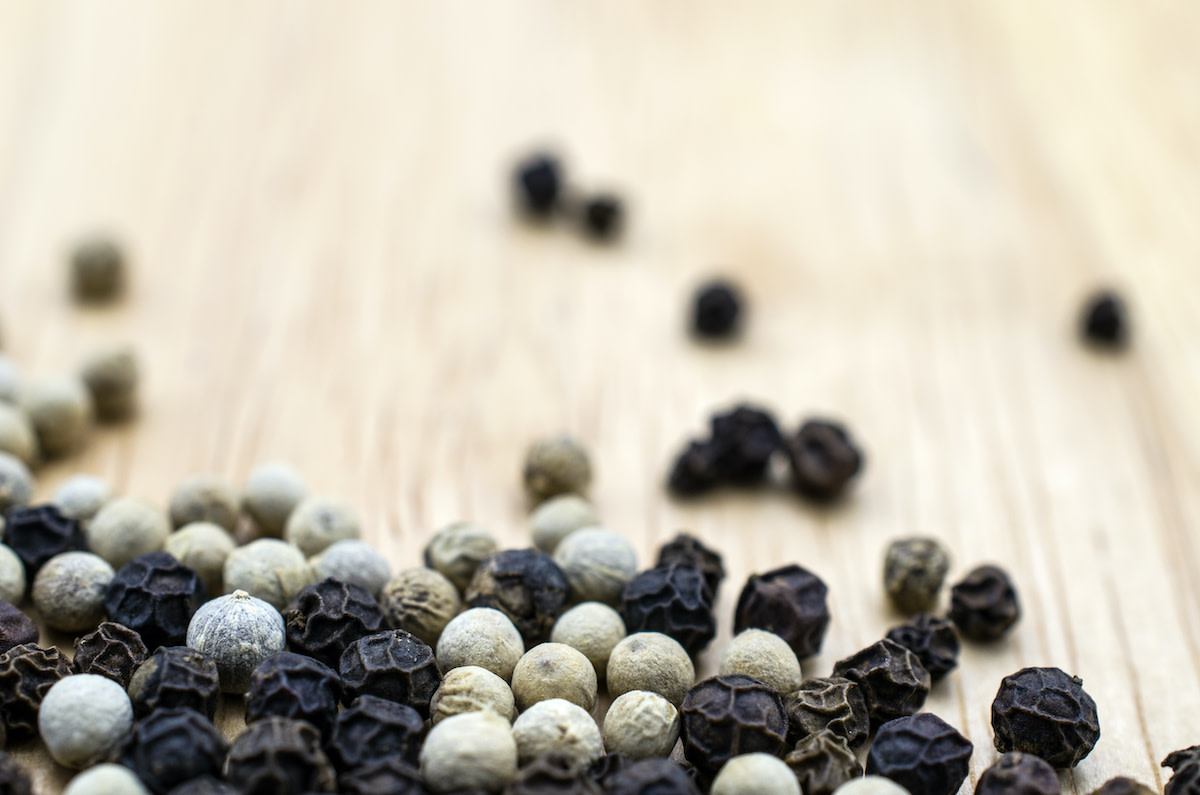White Pepper vs. Black Pepper: 3 Key Differences
Written by MasterClass
Last updated: Sep 28, 2021 • 2 min read
Although they come from the same plant and share similar aromas and tastes, there are important distinctions between white pepper and black pepper.
Learn From the Best
What Is Pepper?
Pepper comes from the Piper nigrum plant (or pepper plant) and is a spice native to India. This seasoning helps endow dishes across the world with an earthy flavor profile.
Avoid confusing peppercorns of this variety with the hot chili peppers that share a similar name—they’re two separate plants without any overlap. Additionally, pepper berries from the Piper nigrum plant derive their spiciness from piperine, while the spicy heat of chili peppers (Capsicum annuum) comes from capsaicin. And while these pepper berries are technically fruit, most don’t taste fruity at all (pink peppercorns are an exception).
The spice appears as often in Asian cuisine as it does in culinary traditions across the Americas and Europe, reaching a truly global scope. You can use it in recipes as diverse as stir fries, hot and sour soup, mashed potatoes, pumpkin pie, and others.
What Is White Pepper?
White peppercorns taste milder than black peppercorns and are white in color. They look the way they do since you allow these initially green peppercorns to ripen after you pick them, and then you ferment them and remove their outer skin. The removal of this outer layer leaves only the white inner seed, rendering them whole white peppercorns after they’re processed. Chefs use this type of pepper prominently in Swedish and French cooking, as well as in Thai, Vietnamese, and Chinese cuisine.
What Is Black Pepper?
Black pepper derives from unripe pepper berries and dries with the outer skin on, thus giving these peppercorns a wrinkly, blackened appearance after you ferment and process them. You can substitute black pepper for white pepper—and vice versa—in many recipes, but it’s wise to consider the overall flavor and amount of pepper you’re using, as well as the dish’s flavor profile, before you swap one out for the other.
3 Differences Between White Pepper vs. Black Pepper
White and black pepper share more similarities than differences, but there are still some important distinctions to note:
- 1. Appearance: You might choose to use either type of pepper for purely aesthetic reasons. If you mind seeing black specks in white sauces or marinades, one of the benefits of white pepper is it blends in as if it was just another type of salt. Others prefer the contrast in appearance.
- 2. Shelf life: Black pepper lasts longer than white pepper. But keep in mind that ground pepper powder of either variety lasts several months before going bad, while peppercorns left intact can stay good for several years. So in either case, if shelf life is important to you, you’re better off storing whole peppercorns and using a grinder as necessary instead of buying already ground white pepper or black pepper.
- 3. Flavor notes: Black and white pepper possess different flavor profiles, although their relation to each other is still recognizable. White pepper has a gentler, less forward, and earthy taste, whereas black pepper has a much more noticeable and spicy flavor.
Mise En Place
To perfect the mother sauces and make French cuisine at home, you must master essential cooking techniques. Discover Chef Thomas Keller’s approach to setting up a home kitchen and sourcing quality ingredients like fish and clams when you sign up for the MasterClass Annual Membership.
